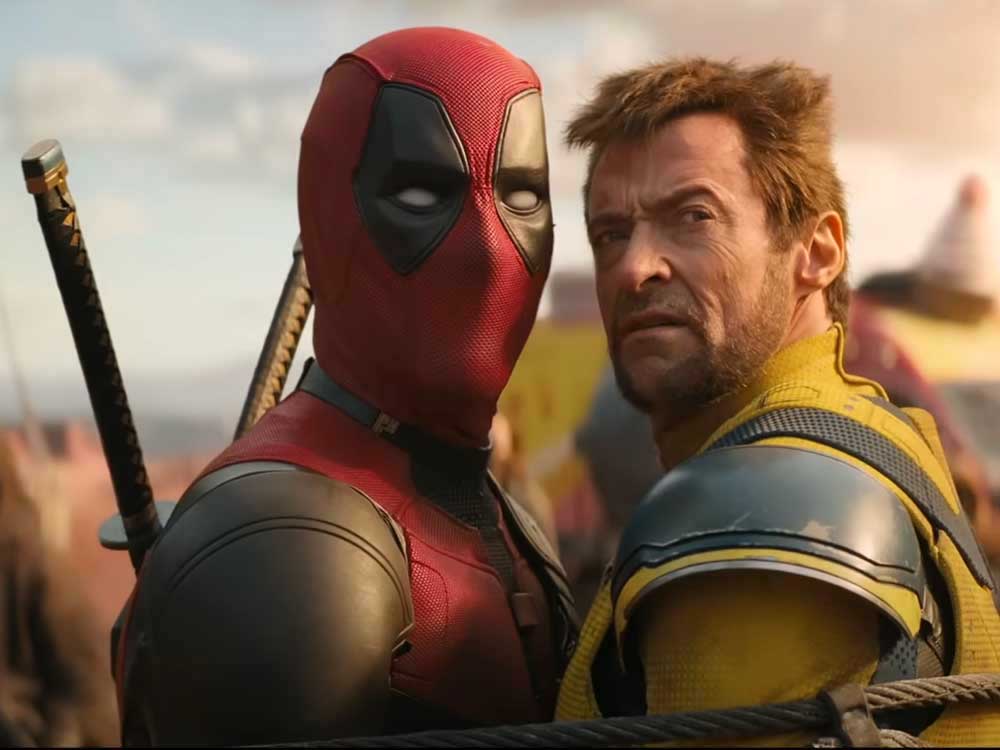The days of the damaged yet relatable main character are in decline. ‘Deadpool & Wolverine’ shows why it’s time to lionize something new.
When the tender green shoots of hope for the world feel so fragile that you almost don’t want to invest any feeling in them lest they be trampled by the elephants of monstrous behaviour, always look to the late, great Simone Weil.
The 20th-century French philosopher offered these words: “Imaginary evil is romantic and varied; real evil is gloomy, monotonous, barren, boring. Imaginary good is boring; real good is always new, marvellous, intoxicating.”
Then, as now, she was exactly right. When you stumble across it in the flesh, genuine good is amazing stuff: miraculous, thrilling, effervescent. But in fiction, evil is usually more interesting and glamorous.
Nothing makes this clearer than the current state of cinema.
The stories that we choose to tell ourselves and others in the movies have gone down a pretty dark road as of late. I am struck by the startling level of brutality even in films that are marketed as family-friendly fare.
Not so long ago, I was idly flicking channels and came across a film about Santa Claus wreaking bloody revenge on a bunch of terrorists. Leaving aside the essential terribleness of the film itself, what struck me was the casual way in which brutal violence was offered as wholesome, frolicsome fun: an unsettling brand of “good-timey” carnage.
It’s a trope that’s been going for quite some time now, and it’s delivered offhandedly with a wink and a smirk because we’re living in the age of anti-heroes.
The most obnoxious and high-grossing example might be the Deadpool movie franchise, in which the wisecracking titular character is memorable for his near-constant deployment of wordplay and swordplay.
It is a veritable deluge of blood and dialogue, drenching audiences to the bone. To be fair, amidst this flood of verbiage, there is some genuinely funny stuff. The word “gubernatorial” has never been employed in better fashion.
From the character’s introduction in comic books to the now three films featuring Merc with a Mouth, as he is affectionately known, Poolio has garnered a cult following, slicing a definitive path away from the more stodgy stuff of heroes like boring old Superman, with his Brylcreem hairdo and uptight attitude. He’s your dad’s superhero, man. In other words, boring.
In Deadpool & Wolverine, the latest outing in theatres this summer, Deadpool (Ryan Reynolds) and his pal Wolverine (Hugh Jackman) are charged with saving not just this world, but every conceivable reality in the multiverse. That’s a lot of responsibility, you might think. And you’d be right, but these two friends never backed away from a challenge, so it’s off to the bloody races they go.
Bloody indeed. The body count in this film is off the charts. The run time is nearly two utterly exhausting hours, and it’s stacked with quips, kills and enough inside jokes to choke an elephant. The narrative strategy is to go for broke, leaving no remark that a 12-year-old would not find hilarious on the cutting room floor. And I say “cutting” literally, because the moments of amusement are so gore-soaked that viewers will have to scrape off the bits of blood and brains to get to them.
A younger person I spoke with about Deadpool & Wolverine noted the incessant breaking of the fourth wall got a bit tiresome after a while. Used in moderation, this conceit can provide a cheeky little jolt. But like anything else, it begins to pall when used in excess. And then there’s the barrage of inside Hollywood industry references, a ridiculous volume of cameos and wads of gay panic humour that, on its own, could cause one to want to roll into a ball and cry for mercy.
The term “fan service” is often used to describe films where characters and storylines are employed to please audiences. It’s a bit of an inside-baseball approach catered towards longtime, hard-core fans. Scads of obscure references are wadded in like so many cinematic winks to those in the know. In this aspect, Deadpool & Wolverine isn’t so much a film as a meme machine, filled to the rafters with asides, inside jokes and visual subtext.
After sitting through the latest romp of Pool and the Gang, I mostly just wanted it to be over. In addition to having to pee, I was simply exhausted. What used to seem daring and provocative now just feels wrung out of juice.
Yes, the film is raking in more money than God. But in spite of the movie’s massive profits, I think things might be turning in how we relate to not just a character like Deadpool, but the very idea of the anti-hero itself.
The film takes an approach where its creators seem to throw everything at the wall and see what sticks. This indicates a lack of new ideas.
But there’s also a feeling that the narrative has been taken as far as it can go. And every tide must turn at some point.
Has ‘Deadpool’ reached a dead end?
In films with a particularly high body count, I sometimes imagine complex, humanizing backstories for all the cannon fodder of nameless baddies being blown to bits and fragments.
What if these dudes (they’re mostly dudes) had partners, children, a weekly bridge game and a mother who loved them and was waiting for them to return home? It makes for a rather complicated viewing of, say, something like The Expendables, where various local henchmen are mown down like so much wheat by action superheroes like Sylvester Stallone and Jason Statham.
Whether they’re films, video games or television series, so many cultural products seem designed to numb. To wipe away any finer, more delicate sensibilities and replace them with ruder reactions. To elicit any strong feeling, it often seems like the ante must be perpetually upped. More eviscerations, more decapitations, more gore. Simply more, more, more.
In this aspect, Deadpool has perhaps reached a dead end. There’s nowhere left to go. Despite its record-breaking performance in box offices across North America, I think audiences can feel the end is nigh.
Maybe it’s finally time to drain the pool and start over.
Try this for a second. Cast your mind back to some of the first movies you saw as a wee sensitive flower. Recall the impact of, say, a first viewing of The Wizard of Oz.
If you’re from a certain generation, those flying monkeys were nightmare fuel. In olden times, The Wizard of Oz used to be aired once a year on network TV. I remember looking forward to it with a mixture of dread and anticipation; “dread-icipation,” perhaps.
The Wizard of Oz was so powerful that it shows up in different ways in almost every film that David Lynch ever made. There’s an entire documentary about it.
Returning to Weil’s point about good and evil and their real and fictive versions, The Wizard of Oz is an interesting example of combining both.
Sure, the Wicked Witch of the West is mesmerizing, but so are the goodly folks who rage against her. The only saccharine note is Dorothy herself, but even she manages some gumption when needed.
Now, think about a recent film that left any enduring impact at all. One that you think about at night in the wee small hours, when the world has shrunk to the size of a pinhead, and all the dark harpies have descended to sup upon your worries.
One that makes you feel hopeful or at least not despairing of humanity.
Today, we’re hungry for good
The idea that art often favours darkness isn’t exactly new. Even the 16th-century poet John Milton (Paradise Lost) was described to be “of the Devil’s party without knowing it.” The famous quip came from none other than the poet William Blake in The Marriage of Heaven and Hell.
An old truth remains centuries later: you can go only so far with a certain narrative strain before you have to turn around and start trudging back in the opposite direction.
Here’s why I think that moment has finally come. Everyone is tired of badness.
If the end of the anti-hero is nigh, blame the American election. The bathetic sinking of the bad ship Donald Trump has riveted large sections of the world. Much of the Trumpian ethos, to pretend the rules simply don’t apply, to make everything into a joke and reduce everything into a quippy one-liner, becomes enervating in extremis, if not downright unendurable.
Cinematic anti-heroes are like their real-world counterparts. While they embody more variegated shades, they have perhaps overstayed their welcome. This is certainly the case with Deadpool and his endless, sarcastic yammering.
If the world finally tired of terrible people and the awful stuff that they have wrought, what comes after?
It looks like we’re all figuring out, in real time, what it’s like when the winds of change shift.
But of course, even as I write this, I realize that things can radically change within days, hours, minutes even. No more vivid indicator is needed than the infernal election to our south.
It’s probably a little too early to tell, but it does feel like a sea change is underway. Is there a greater lesson to be learned, or maybe relearned?
Perhaps only that when it comes to human behaviour, uncoupling fantasy from reality is necessary if we’re going to do things differently.
It’s a complicated business, but you’ve gotta start somewhere. So, start with movies.
Source: thetyee.ca


